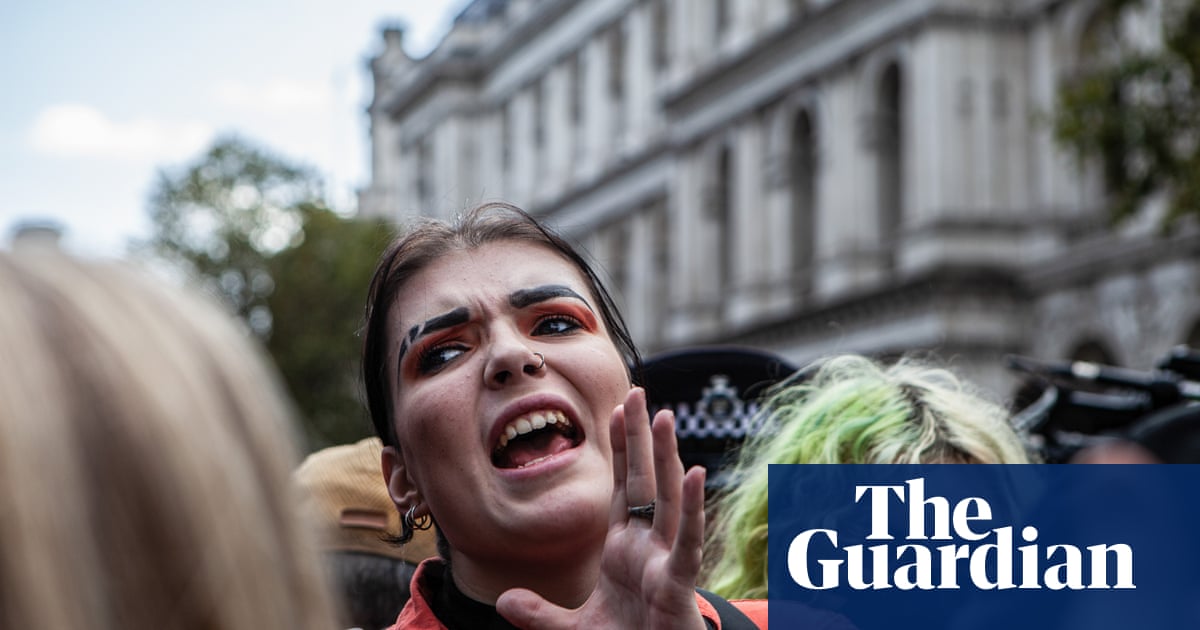
Anger is by far the most powerful emotional predictor of whether somebody plans to take part in a climate protest, research suggests.
The study, which asked 2,000 Norwegian adults how they felt about the climate crisis, found the link to activism was seven times stronger for anger than it was for hope. The effects were smaller for other actions, but fear and guilt were the best predictors of policy support, while sadness, fear and hope were the best predictors of behavioural change.
On average, people reported having fairly mild feelings about the planet heating.
“The problem isn’t that people feel too scared about climate change,” said Thea Gregersen, a climate psychologist at the Norwegian Research Centre and lead author of the study. “The problem, in Norway at least, seems to be that they’re not scared enough.”
Faced with rising reports of ecological anxiety, psychologists across the world are racing to understand how people’s feelings about the destruction of nature affect their mental health and behaviour. But the few studies to interrogate the link between emotions and actions have shown mixed results.
“We’re nowhere near having a comprehensive understanding,” said Caroline Hickman, a climate psychologist at the University of Bath, who was not involved in the study. “If anybody presents this material confidently as certainties or pretends they’re an expert, ignore them. Run away.”
The researchers in Norway, a rich oil-exporting country, found that for every two steps a person took along the anger scale, they moved one step along the activism scale. The link between emotion and action was weaker for questions about limiting emissions in everyday life and supporting a tax on petrol and diesel.
The methods were sound and typical for the field but the effect sizes were small, said Cameron Brick, a social scientist at the University of Amsterdam who was not involved in the study. The researchers also only looked at what people said they would do, rather than what they did, he added. Previous studies have shown “intentions are surprisingly weakly aligned with actual behaviour”.
Climate scientists have raised fears that a glut of doom-laden headlines and negative rhetoric – some of it based on incorrect claims – will push people into despair and stop them from acting. A survey of 10,000 young people in 2021 found most agreed with the statement “humanity is doomed”, even though the planet will stop heating in a matter of years if people were to stop clogging the atmosphere with carbon.
But experts suggest the gloom reflects a lack of faith in society, rather than a misunderstanding of the physics. “Rather than climate anxiety, we should be calling it politician anxiety or people anxiety, because it’s the people in power who are failing to do the right thing whilst lying to us, or doing the opposite, that is causing the terror,” said Hickman, who was the lead author of the 2021 study and previously a social worker.
“I realised eight years ago … that the narratives I was hearing around climate change were the same as the narratives I’d heard around child abuse. The very people who are supposed to protect you are the people who are hurting you. And not only are they hurting you, they’re telling you that they love you and they’re doing it for your own good.”
When the researchers in Norway asked participants what made them angry, they found most people mentioned human actions such as causing the climate crisis or failing to stop it. A further 26% said their anger related to human qualities such as people not caring.
People should feel angry because they had been deliberately deceived by fossil fuel companies and governments had let that happen, said Dr Laura Thomas-Walters, a social scientist at the Yale Programme on Climate Communication and an activist with Extinction Rebellion, who was not involved in the studies.
The link from anger to activism was logical, she added. “It’s in the name that activism is an ‘active’ behaviour, and anger can spur action.”
But messages that make people angry can also push others to shut down, particularly if they feel powerless. There were robust studies from health psychology that showed communicating risks could backfire if people were not also told how they could protect themselves, said Lorraine Whitmarsh, the head of the UK’s Centre for Climate Change and Social Transformations, who was not involved in the study. “People really need to feel they can make a difference on climate change. And it’s much harder to make a difference on climate change than it is on health risks, because it’s a great big global collective problem.”
Scientists are working to understand the role that hope plays. A review study published on Tuesday found “partial yet inconclusive evidence” that increasing hope makes people engage more with the climate. It found people whose hope was rooted in complacency were less likely to engage than those whose hope was linked to action.
“Even there, the relationship seems to be more the other way around,” said Lea Dohm, a psychologist and co-founder of the German climate action group Psychologists for Future, who also was not involved. “It may be less that hope comes first and then brings action, but rather that people act and then hope arises.”
What people needed from the media, she said, was above all an honest portrayal of the facts. “When we state scientific facts, some feelings will come. And what we need to do then is validate them and say, hey, what you feel is justified, reasonable and shared by many other people.”












